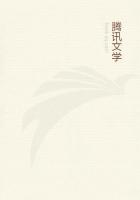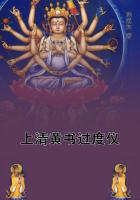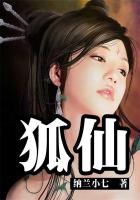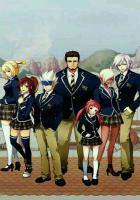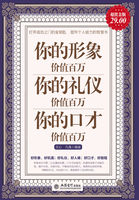Apollodorus (22), iii. 14.4.1:
But Hesiod says that he (Adonis) was the son of Phoenix and Alphesiboea.
Fragment #22 --
Porphyrius, Quaest. Hom. ad Iliad. pert. p. 189:
As it is said in Hesiod in the "Catalogue of Women" concerning Demodoce the daughter of Agenor: `Demodoce whom very many of men on earth, mighty princes, wooed, promising splendid gifts, because of her exceeding beauty.'
Fragment #23 --
Apollodorus, iii. 5.6.2:
Hesiod says that (the children of Amphion and Niobe) were ten sons and ten daughters.
Aelian (23), Var. Hist. xii. 36:
But Hesiod says they were nine boys and ten girls; -- unless after all the verses are not Hesiod but are falsely ascribed to him as are many others.
Fragment #24 --
Scholiast on Homer, Il. xxiii. 679:
And Hesiod says that when Oedipus had died at Thebes, Argea the daughter of Adrastus came with others to the funeral of Oedipus.
Fragment #25 --
Herodian (24) in Etymologicum Magnum, p. 60, 40:
Tityos the son of Elara.
Fragment #26 -- (25)
Argument: Pindar, Ol. xiv:
Cephisus is a river in Orchomenus where also the Graces are worshipped. Eteoclus the son of the river Cephisus first sacrificed to them, as Hesiod says.
Scholiast on Homer, Il. ii. 522:
`which from Lilaea spouts forth its sweet flowing water....'
Strabo, ix. 424:
`....And which flows on by Panopeus and through fenced Glechon and through Orchomenus, winding like a snake.'
Fragment #27 --
Scholiast on Homer, Il. vii. 9:
For the father of Menesthius, Areithous was a Boeotian living at Arnae; and this is in Boeotia, as also Hesiod says.
Fragment #28 --
Stephanus of Byzantium:
Onchestus: a grove (26). It is situate in the country of Haliartus and was founded by Onchestus the Boeotian, as Hesiod says.
Fragment #29 --
Stephanus of Byzantium:
There is also a plain of Aega bordering on Cirrha, according to Hesiod.
Fragment #30 --
Apollodorus, ii. 1.1.5:
But Hesiod says that Pelasgus was autochthonous.
Fragment #31 --
Strabo, v. p. 221:
That this tribe (the Pelasgi) were from Arcadia, Ephorus states on the authority of Hesiod; for he says: `Sons were born to god-like Lycaon whom Pelasgus once begot.'
Fragment #32 --
Stephanus of Byzantium:
Pallantium. A city of Arcadia, so named after Pallas, one of Lycaon's sons, according to Hesiod.
Fragment #33 --
(Unknown):
`Famous Meliboea bare Phellus the good spear-man.'
Fragment #34 --
Herodian, On Peculiar Diction, p. 18:
In Hesiod in the second Catalogue: `Who once hid the torch (27)within.'
Fragment #35 --
Herodian, On Peculiar Diction, p. 42:
Hesiod in the third Catalogue writes: `And a resounding thud of feet rose up.'
Fragment #36 --
Apollonius Dyscolus (28), On the Pronoun, p. 125:
`And a great trouble to themselves.'
Fragment #37 --
Scholiast on Apollonius Rhodius, Arg. i. 45:
Neither Homer nor Hesiod speak of Iphiclus as amongst the Argonauts.
Fragment #38 --
`Eratosthenes' (29), Catast. xix. p. 124:
The Ram.] -- This it was that transported Phrixus and Helle. It was immortal and was given them by their mother Nephele, and had a golden fleece, as Hesiod and Pherecydes say.
Fragment #39 --
Scholiast on Apollonius Rhodius, Arg. ii. 181:
Hesiod in the "Great Eoiae" says that Phineus was blinded because he revealed to Phrixus the road; but in the third "Catalogue", because he preferred long life to sight.
Hesiod says he had two sons, Thynus and Mariandynus.
Ephorus (30) in Strabo, vii. 302:
Hesiod, in the so-called Journey round the Earth, says that Phineus was brought by the Harpies `to the land of milk-feeders (31) who have waggons for houses.'
Fragment #40A -- (Cp. Fr. 43 and 44)
Oxyrhynchus Papyri 1358 fr. 2 (3rd cent. A.D.): (32)((LACUNA -- Slight remains of 7 lines))(ll. 8-35) `(The Sons of Boreas pursued the Harpies) to the lands of the Massagetae and of the proud Half-Dog men, of the Underground-folk and of the feeble Pygmies; and to the tribes of the boundless Black-skins and the Libyans. Huge Earth bare these to Epaphus -- soothsaying people, knowing seercraft by the will of Zeus the lord of oracles, but deceivers, to the end that men whose thought passes their utterance (33) might be subject to the gods and suffer harm -- Aethiopians and Libyans and mare-milking Scythians. For verily Epaphus was the child of the almighty Son of Cronos, and from him sprang the dark Libyans, and high-souled Aethiopians, and the Underground-folk and feeble Pygmies. All these are the offspring of the lord, the Loud-thunderer. Round about all these (the Sons of Boreas) sped in darting flight....
....of the well-horsed Hyperboreans -- whom Earth the all-nourishing bare far off by the tumbling streams of deep-flowing Eridanus.... ....of amber, feeding her wide-scattered offspring -- and about the steep Fawn mountain and rugged Etna to the isle Ortygia and the people sprung from Laestrygon who was the son of wide-reigning Poseidon. Twice ranged the Sons of Boreas along this coast and wheeled round and about yearning to catch the Harpies, while they strove to escape and avoid them. And they sped to the tribe of the haughty Cephallenians, the people of patient-souled Odysseus whom in aftertime Calypso the queenly nymph detained for Poseidon. Then they came to the land of the lord the son of Ares.... ....they heard. Yet still (the Sons of Boreas) ever pursued them with instant feet. So they (the Harpies) sped over the sea and through the fruitless air...'
Fragment #40 --
Strabo, vii. p. 300:
`The Aethiopians and Ligurians and mare-milking Scythians.'
Fragment #41 --
Apollodorus, i. 9.21.6:
As they were being pursued, one of the Harpies fell into the river Tigris, in Peloponnesus which is now called Harpys after her. Some call this one Nicothoe, and others Aellopus. The other who was called Ocypete, or as some say Ocythoe (though Hesiod calls her Ocypus), fled down the Propontis and reached as far as to the Echinades islands which are now called because of her, Strophades (Turning Islands).
Fragment #42 --
Scholiast on Apollonius Rhodius, Arg. ii. 297:

